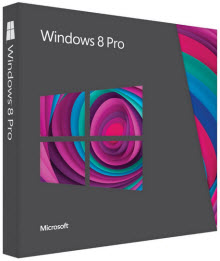StatCounter: Windows 8 license sales not yet translating into usage


A new reports suggests Windows 8 Internet usage is trailing behind what Windows 7 achieved, one month after launch.
According to Web metrics firm StatCounter, Microsoft's Windows 8 operating system achieved worldwide Internet usage share of only 1.31 percent by 26 November 2012, compared to the 4.93 percent grabbed by Windows 7 just one month following its launch in 2009.
In the U.S., the data suggests that things are even more subdued, with the new operating system only managing to claw 1.77 percent of Internet usage during the month after its launch, compared to 5.21 percent for Windows 7 following its market debut.
"Microsoft has reported license sales of 40 million for Windows 8, however this has not yet translated into significant usage figures," StatCounter chief executive Aodhan Cullen said. "This may be due to sales to manufacturers rather than to end users so Windows 8 may well get a boost over the December holiday buying season."
But it's not all bad news. While Windows 8 is lagging behind Windows 7 in actual terms, in relative terms the operating system has more than tripled its usage share over this period, while Windows 7 only doubled its usage in the corresponding period following its launch.
| Usage share at launch | One month after launch | Relative increase | |
| Windows 7 | 2.21 percent * | 4.93 percent | 223 percent |
| Windows 8 | 0.38 percent ** | 1.31percent | 345 percent |
| * October 22, 2009 for Windows 7 ** October 26, 2012 for Windows 8 | |||
The company also goes on to stress that Windows 8 was launched around the time of the Hurricane Sandy hit the U.S. East Coast, and that this likely affected typical Internet usage at this time.
StatCounter data is based on over 15 billion page views per month (four billion from the U.S.) to the StatCounter network of more than three million websites.
StatCounter isn't the only Web metric firm to suggest that Windows 8 is slower out of the gate than Windows 7 was. Earlier this month, Net Applications released data that corroborated StatCounter's figures.
The press and pundit reaction to Windows 8 has been mixed. While the new operating system is just as fast as Windows 7, and data suggests that it is far more stable than either Windows 7 and Windows XP, severe doubts have been raised about the new user interface that Microsoft has chosen for it, with usability experts branding it "confusing" and "disappointing" for "both novice and power users."
Combine this with the fact that it is hard to come up with a compelling reason for anyone to upgrade to Windows 8 -- at least just yet -- and we perhaps gain some insight into why adoption might be slower this time around.
Then there's the problem of a stagnant PC market. Microsoft is reliant on its hardware partners to get its operating systems into the hands of users, and right now, but with sales faltering as the entire industry feels the pressure from tablets and smartphones, Microsoft is turning to the upgrade market to help bolster sales, offering cut-priced deals to lure people to the new platform.